|
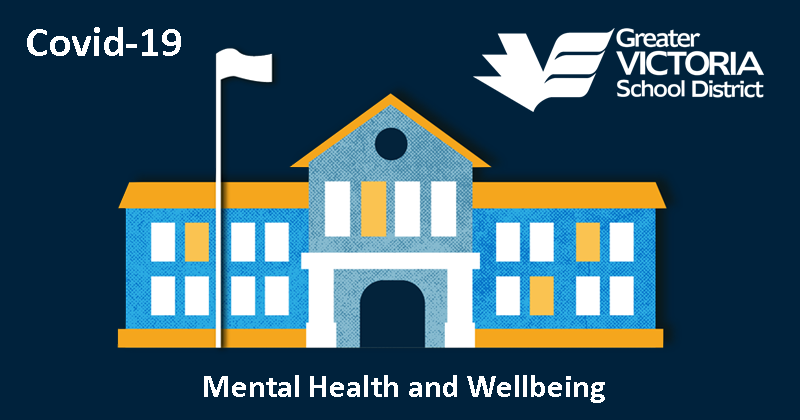
| April 20, 2020
COVID - 19
Early Learning and Elementary Snapshot
Fostering Positive
Family Relationships

|
| |
|
|
|
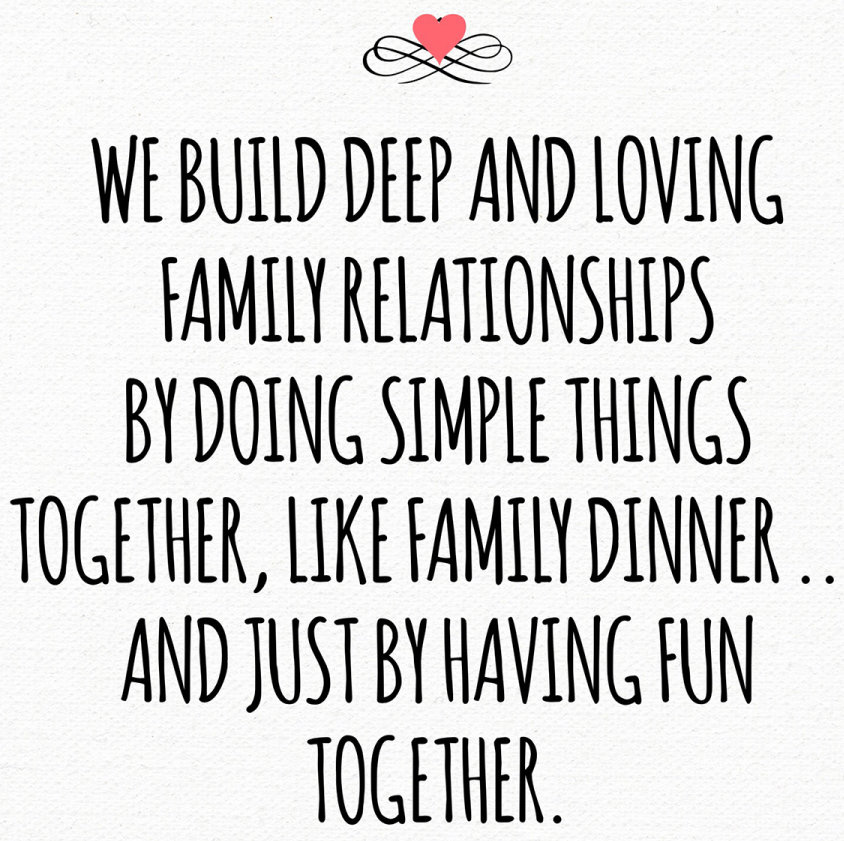
| Right after many schools and workplaces were closed, there was a push for parents to see the coronavirus crisis as an opportunity, not to waste this extra time with their kids. Parents were encouraged to organize their kids’ closets, work on their math skills, etc, but that is just not realistic.
It’s time to lower our expectations. You won’t be able to do as much as you usually can as a parent, employee or partner. Instead, experts recommend focusing on your own, and your children’s emotional state and strive to maintain positive family dynamics.
Spending time focusing on your family relationships will be time well spent. Positive family relationships go a long way to helping everything else fall into place.
|
|
|
|
|
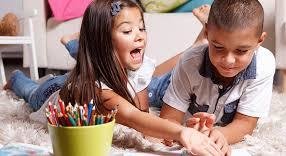
| If you have more than one child, chances are you have had to referee sibling fighting. The fact is, even the best sibling relationships can have their moments of conflict and friction. But with a little insight and patience, a more peaceful home can be achieved.
|
|
|
|
Try to understand why sibling fighting may occur. Each skirmish may be set off by a different circumstance, whose turn it is to do the dishes or who gets to pick the TV show but the root cause may be a bigger issue.
|
| |
|
It may be a clash of personalities or unresolved feelings of rivalry. A child may feel like mom or dad favors his sibling. Another child may feel resentful because she doesn’t get to do as much as her older sister. Or one sibling may like things to be quiet while the other one is all about the noise. Whatever the cause, it’s important that parents do what they can to foster a good relationship between siblings, and make sure that any conflicts do not damage their relationship.
|
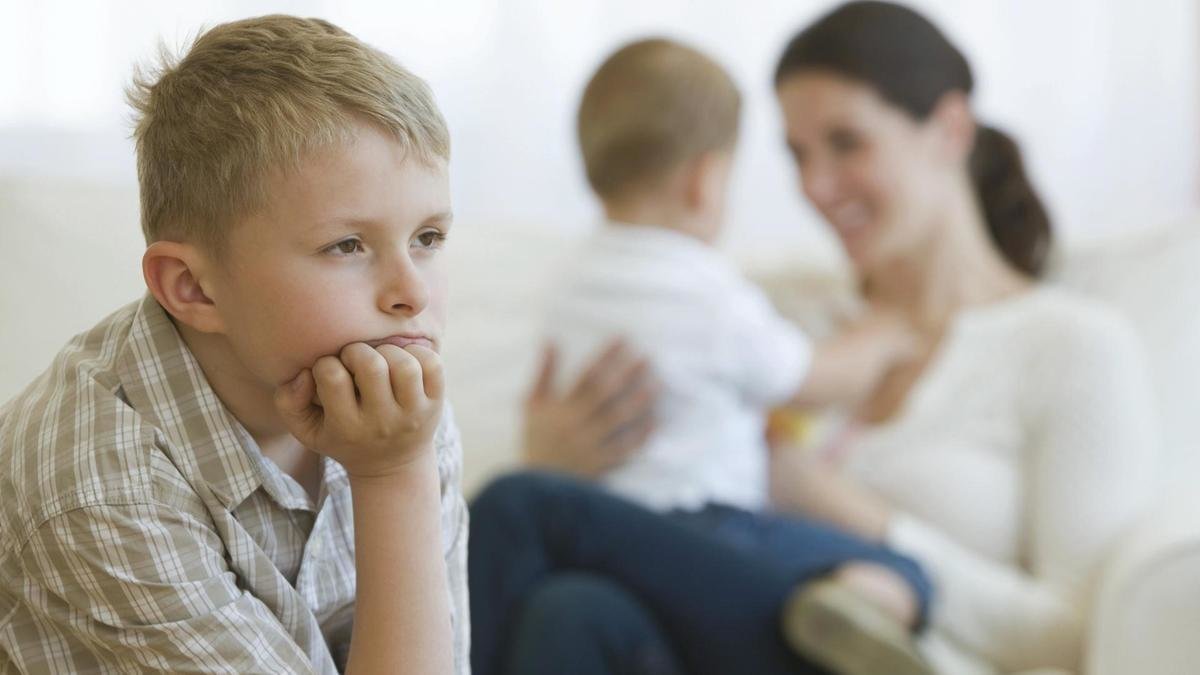
|
|
|
Cast sibling harmony as important for the whole family. Explain to your children that your family is like a team. And like any good team, everyone—parents and the kids—need to work together to have a peaceful and loving home. Any fights among family members can hurt the whole team or the family.
|
Make respect a
non-negotiable rule. This means no name-calling and absolutely no hitting or other physical aggression. Also, encourage your children to really listen to the other’s side of things and give them the respect they would like for themselves.
|
Step in if necessary. Some parents may believe that it’s best to let kids handle conflict on their own. That can be true as long as children have the tools to manage disagreements in a constructive, positive, and peaceful way. But if there is verbal or physical aggression, step in and make it clear that aggression of any kind is not acceptable in your home.
|
|
|
|
|
Listen to each side. There will be two sides to each story in a sibling fight. Let each child feel like they are being listened to, without judgment or interruption. Often, children feel much better after venting to mom or dad about a problem, especially when they feel that they can state their position and it will be heard fairly. |
Encourage kids to get specific and state the problem. Tell your child to focus on what they are upset about, rather than on their sibling. For instance, if your child is upset that her brother likes to always choose what game they’ll play, she should state the problem rather than saying something like, “You’re not being fair!”
|
|
|

| By being specific about the problem (having an equal say in choosing the games) rather than focusing on a sibling’s behavior, the discussion can become more about the problem and solution, rather than their characterization of each other.
Ask the children to suggest some solutions. Have your children come up with some scenarios or resolutions that will be fair for both sides. Encourage them to put themselves in the other person’s shoes before making suggestions.
|
|
|
Second Step SEL Program Second Step is a research-based program rooted in social-emotional learning (SEL). The program provides instruction in SEL with units on skills for learning, empathy, emotion management, friendship skills, and problem solving.
Many of our elementary schools have been using the Second Step Program. If your child's classroom has been participating in Second Step they may be familiar with the Problem Solving Steps.
Click on the links below to access information on the problem solving steps and activities for you and your child to do together.
|
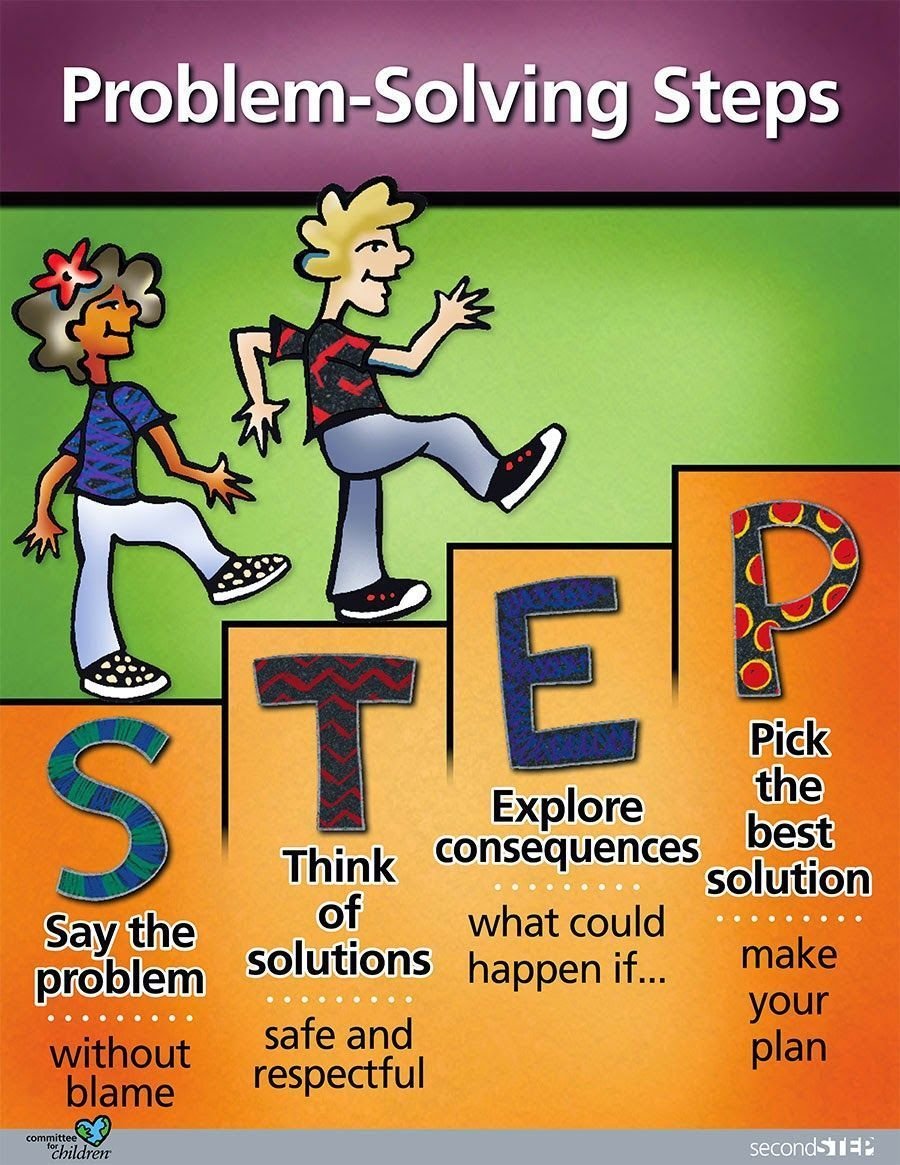
|
|
|
|
|
|
|
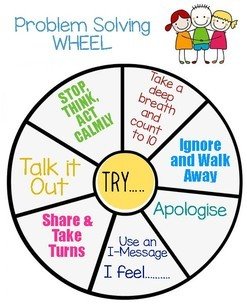
| Problem Solving Wheel The problem-solving wheel is another tool to help teach your children to solve a problem independently. It is a great way to give children a visual of choices to help them either calm down when they are upset or to solve a problem with a sibling. It is best to use the wheel with smaller problems. Small problems include conflicts that cause “small” feelings of annoyance, embarrassment, boredom, frustration etc. If your child has a big problem they will require adult
guidance. Click here for a printable problem solving wheel that your children can add their own words and pictures to.
|
|
|
|
|
In a crisis, children and parents alike need a place where they feel safe, for many of us, that place is the family, in all its various configurations. How can divorced, separated, or separating parents address the unique parenting challenges that the COVID-19 pandemic creates?
Children do best when separated or divorced parents are flexible with each other under changing circumstances, communicate well with each other about how they are adapting, and work together to solve new, specific challenges.
|
|
|

|
In the largest study of divorced families, it was found that many parents who were generally uncooperative became cooperative during an emergency. Parents often have an easier time setting aside old ways of interacting when they realize they have to adapt together to some external threat to their child`s well-being,
|
|
|
Whether married, separated or divorced ideally parents should schedule time to talk regularly about parenting, co-parenting and family life. The regularity of these kinds of talks can reduce conflict because both parties can depend on having time to talk deliberately and intentionally about what is important.
|
|
|
|
|
Click below for a comprehensive list of Community Services and their availability during the pandemic.

|
|
|
|
|
|
|
|
Learning Resources for Students with Complex Needs
|
|
|
|
|
|
|
|
|
|
|
|
|